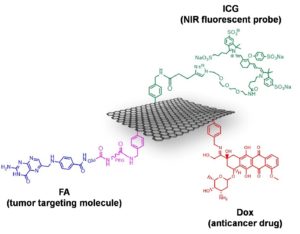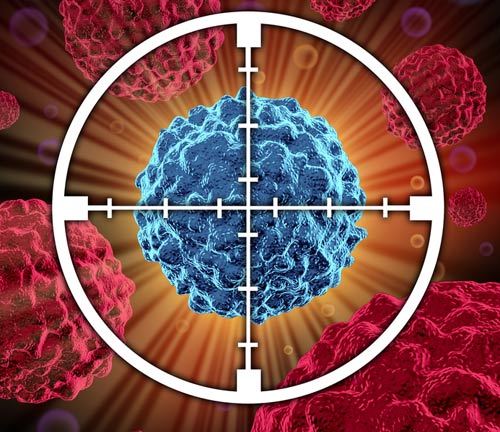Scientists from the Japan Advanced Institute of Science and Technology (JAIST) and Centre national de la recherche scientifique (CNRS), and their colleagues say they have developed a type of nanomedicine based on multi-functional graphene that allows for targeted cancer treatment at molecular level.
Single molecular sheet graphene is a promising carbon nanomaterial for various fundamental and practical applications in the next decade because of its excellent physico-chemical features, according to the researchers, who published their study “Rational chemical multifunctionalization of graphene interface enhances targeting cancer therapy” in Angewandte Chemie International Edition.

“The synthesis of a drug delivery platform based on graphene was achieved through a step‐by‐step strategy of selective amine deprotection and functionalization. The multifunctional graphene platform, functionalized with indocyanine green, folic acid and doxorubicin showed an enhanced anticancer activity,” write the investigators.
“The remarkable targeting capacity for cancer cells in combination with the synergistic effect of drug release and photothermal properties prove the great advantage of a combined chemo‐ and phototherapy based on graphene against cancer, opening the doors to future therapeutic applications of this type of material.”
Eijiro Miyako, PhD, from JAIST, and Alberto Bianco, PhD, from CNRS, and their international teams, developed multi-functional graphene as a drug delivery carrier.
Aside from testing the therapeutic abilities to eliminate cancer cells in a culture dish, the team reports that it found that the properties of this system enhanced anticancer activity with a cancer targeting effect. This would open the doors to future biomedical applications of this type of material, according to the team, who add that they plan to continue exploring multi-functional graphene towards the cancer therapy using a murine animal model.


